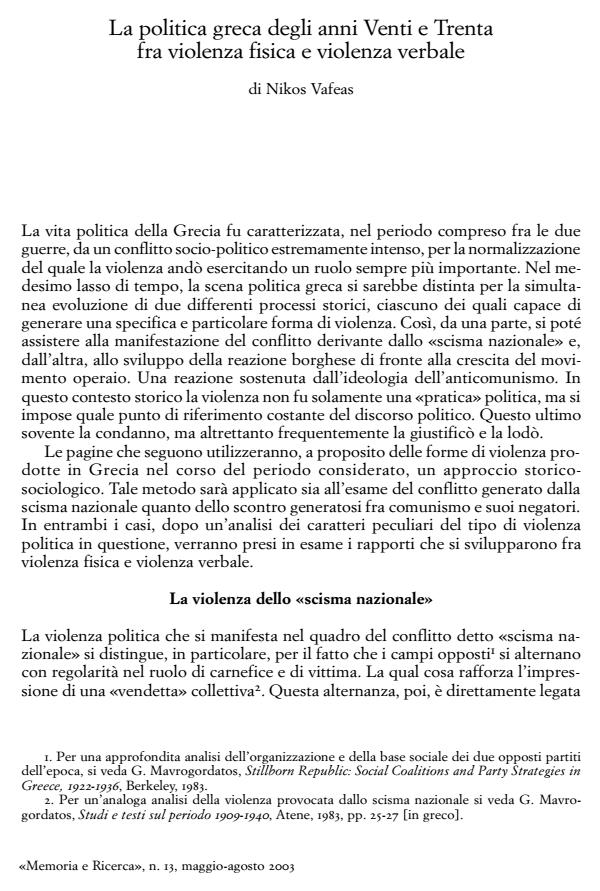La politica greca degli anni Venti e trenta fra violenza fisica e violenza verbale
Journal title MEMORIA E RICERCA
Author/s Nikos Vafeas
Publishing Year 2003 Issue 2003/13
Language Italian Pages 20 P. File size 296 KB
DOI
DOI is like a bar code for intellectual property: to have more infomation
click here
Below, you can see the article first page
If you want to buy this article in PDF format, you can do it, following the instructions to buy download credits

FrancoAngeli is member of Publishers International Linking Association, Inc (PILA), a not-for-profit association which run the CrossRef service enabling links to and from online scholarly content.
This article investigates the relationship between physical and verbal violent prac-tices in the political struggle in interwar Greece. First, it tries to establish a typol-ogy of violent modes of behaviour adopted by political actors; according to this typology, in interwar Greece one can sketch two distinct ideal types of political violence, each one having its own characteristics and corresponding to the two dif-ferent, but parallel, historical processes that marked the social and political history of the country during the above-mentioned period: a) what is called the National Schism and b) the emergence of the labour movement, that provoked a strong and constant reaction to the other socio-political forces. Upon this typology, it is further examined how, within each of these two forms of political conflict, physi-cal and verbal violent practices are articulated. The main argument is that, contrary to the violence of the National Schism, the main characteristics of which are a ro-tation to the roles of the performer and the victim by the members of the two opposed political camps, its manifestation in waves, among which a period of détente intervenes, as well as its complex relationship with verbal violence, the vio-lence of anticommunism is characterized, on the one hand, by a consolidation at the roles of the performer and the victim and, on the other, by a tendency of continuity and evolution. Moreover, in this case the relationship between physical and verbal violence is constantly affirmative while the latter either prepares the ground for the manifestation of the former or it tries to legitimize it a posteriori.
Nikos Vafeas, La politica greca degli anni Venti e trenta fra violenza fisica e violenza verbale in "MEMORIA E RICERCA " 13/2003, pp , DOI: